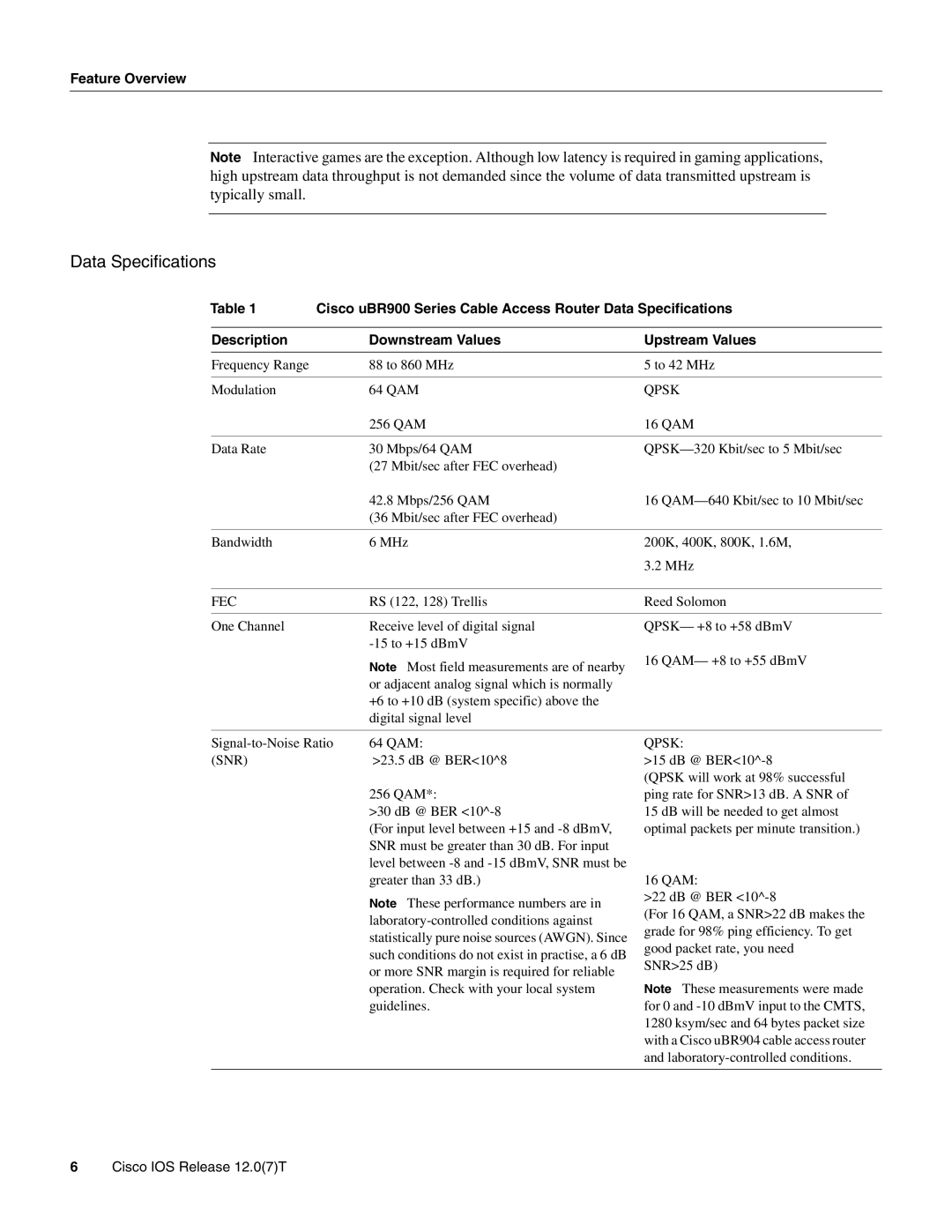
Feature Overview
Note Interactive games are the exception. Although low latency is required in gaming applications, high upstream data throughput is not demanded since the volume of data transmitted upstream is typically small.
Data Specifications
Table 1 | Cisco uBR900 Series Cable Access Router Data Specifications | |
|
|
|
Description | Downstream Values | Upstream Values |
|
|
|
Frequency Range | 88 to 860 MHz | 5 to 42 MHz |
|
|
|
Modulation | 64 QAM | QPSK |
| 256 QAM | 16 QAM |
|
|
|
Data Rate | 30 Mbps/64 QAM | |
| (27 Mbit/sec after FEC overhead) |
|
| 42.8 Mbps/256 QAM | 16 |
| (36 Mbit/sec after FEC overhead) |
|
|
|
|
Bandwidth | 6 MHz | 200K, 400K, 800K, 1.6M, |
|
| 3.2 MHz |
|
|
|
FEC | RS (122, 128) Trellis | Reed Solomon |
|
|
|
One Channel | Receive level of digital signal | QPSK— +8 to +58 dBmV |
|
| |
Note Most field measurements are of nearby | 16 QAM— +8 to +55 dBmV |
| |
or adjacent analog signal which is normally |
|
+6 to +10 dB (system specific) above the |
|
digital signal level |
|
64 QAM: | |
(SNR) | >23.5 dB @ BER<10^8 |
| 256 QAM*: |
| >30 dB @ BER |
| (For input level between +15 and |
| SNR must be greater than 30 dB. For input |
| level between |
| greater than 33 dB.) |
| Note These performance numbers are in |
|
|
| statistically pure noise sources (AWGN). Since |
| such conditions do not exist in practise, a 6 dB |
| or more SNR margin is required for reliable |
| operation. Check with your local system |
| guidelines. |
QPSK:
>15 dB @
(QPSK will work at 98% successful ping rate for SNR>13 dB. A SNR of 15 dB will be needed to get almost optimal packets per minute transition.)
16 QAM:
>22 dB @ BER
(For 16 QAM, a SNR>22 dB makes the grade for 98% ping efficiency. To get good packet rate, you need
SNR>25 dB)
Note These measurements were made for 0 and
6Cisco IOS Release 12.0(7)T
